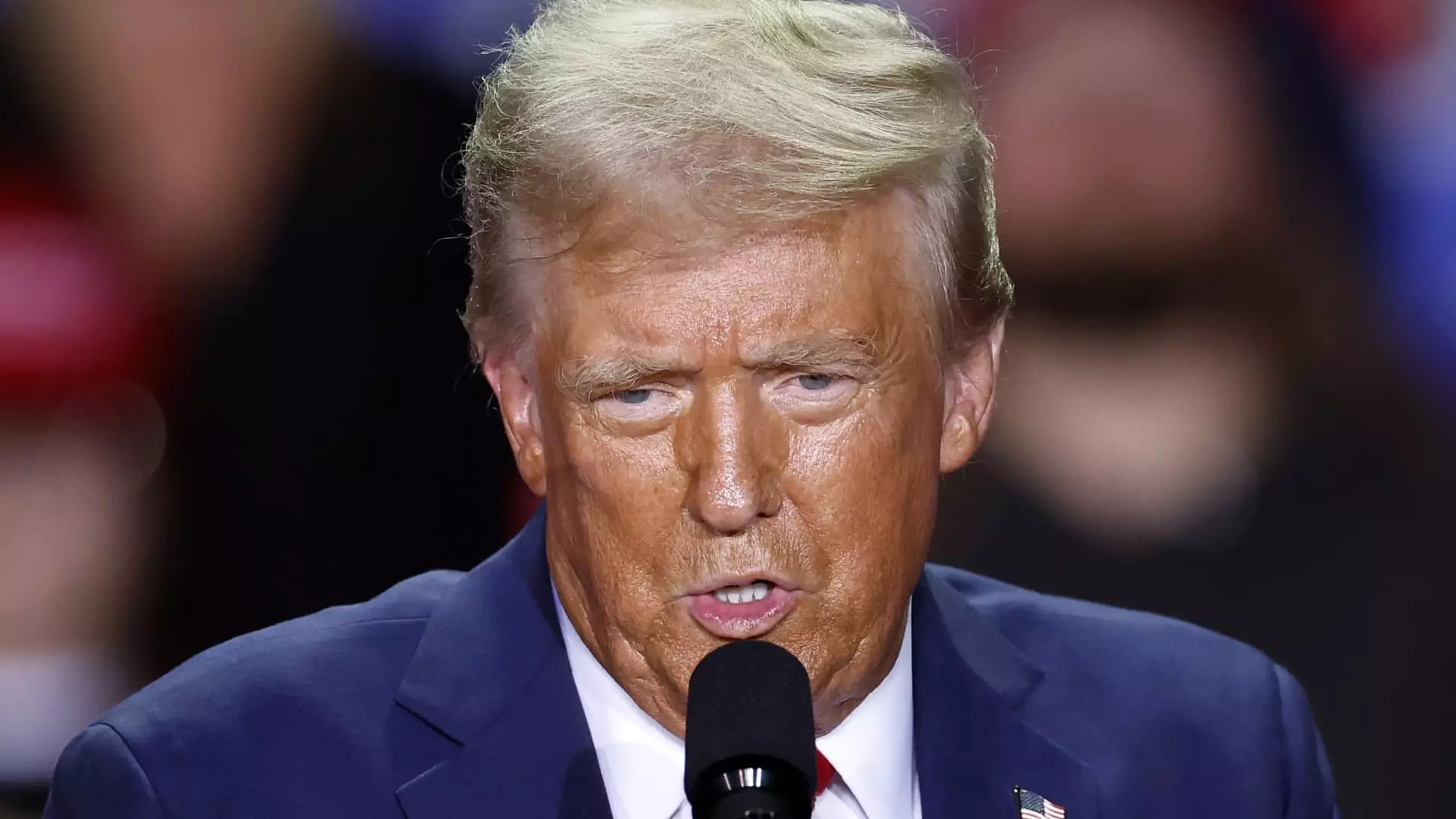In the ever-evolving backdrop of American politics and its intersection with financial markets, the recent performance of Donald Trump’s media enterprise encapsulates a tale of volatility, investor sentiment, and political maneuvering. In the course of a tumultuous election season, shares of the Trump Media & Technology Group have become a barometer not just for the company itself, but for the larger implications of Trump’s second presidential bid.
On Election Day, the stock observed a notable surge, climbing approximately 10% in after-hours trading. This uptick escalated even further, with the company’s share value soaring around 43% to exceed $48. Such trajectories indicate a strong correlation between political outcomes and market responses; as Trump’s electoral prospects seemingly strengthened, so too did investor confidence in his media enterprise. The ability of Trump’s business to resonate with his base, despite a sizable reported loss of $19.2 million in Q3, highlights how electoral narratives often overshadow financial performance in politically charged environments.
The volatility of the stock, particularly during the back-and-forth of campaign events, underscores an essential characteristic of investing in politically inclined assets. With polls heavily advertising a close race between Trump and Kamala Harris, the market appeared reactive rather than driven by fundamental valuation metrics. Investors seemed to move in alignment with the fluctuating public sentiment that was palpable leading up to the election.
Despite the dramatic fluctuations—where the stock plummeted over 34% in just five days amid Harris’s gaining momentum—Trump Media’s stock has demonstrated impressive resilience, surging more than 105% within the past month. However, this dichotomy raises questions about the sustainability of such a price rally. While a significant jump on the eve of Election Day suggested optimism among investors, the company’s worrying financial report reveals that mere political branding may not suffice for long-term profitability.
Trump Media’s CEO, Devin Nunes, once a congressman, framed the quarter as remarkable for both the company and its supporters. Yet, behind his optimistic statements lies a complicated reality where revenue was barely over $1 million, further complicated by the substantial operating losses incurred. This tension between the company’s ambitious messaging and its financial shortcomings reflects a typical scenario for entities influenced heavily by their political affiliations.
One cannot ignore that while Trump’s bid for the presidency influences share price movements, secondary factors also play a significant role. Market dynamics such as profit-taking, investor psychology, and external economic pressures often dictate stock performance beyond straightforward political affiliations. As the market digests the implications of the election, and regardless of the outcome, investors will need to weigh all factors—political and otherwise—before drawing conclusions about the soundness of their investments in the media group.
As Trump navigates the complexities of a politically charged landscape, the fate of Trump Media & Technology Group serves as a microcosm of a broader narrative that merges finance with politics. It underscores the enduring link between political campaigns and market reactions, conveying a message that political ambition might resonate in the short term, but enduring market success requires a solid financial foundation. As we await the final electoral details, one thing remains clear: the story of Trump Media is far from over.


Leave a Reply